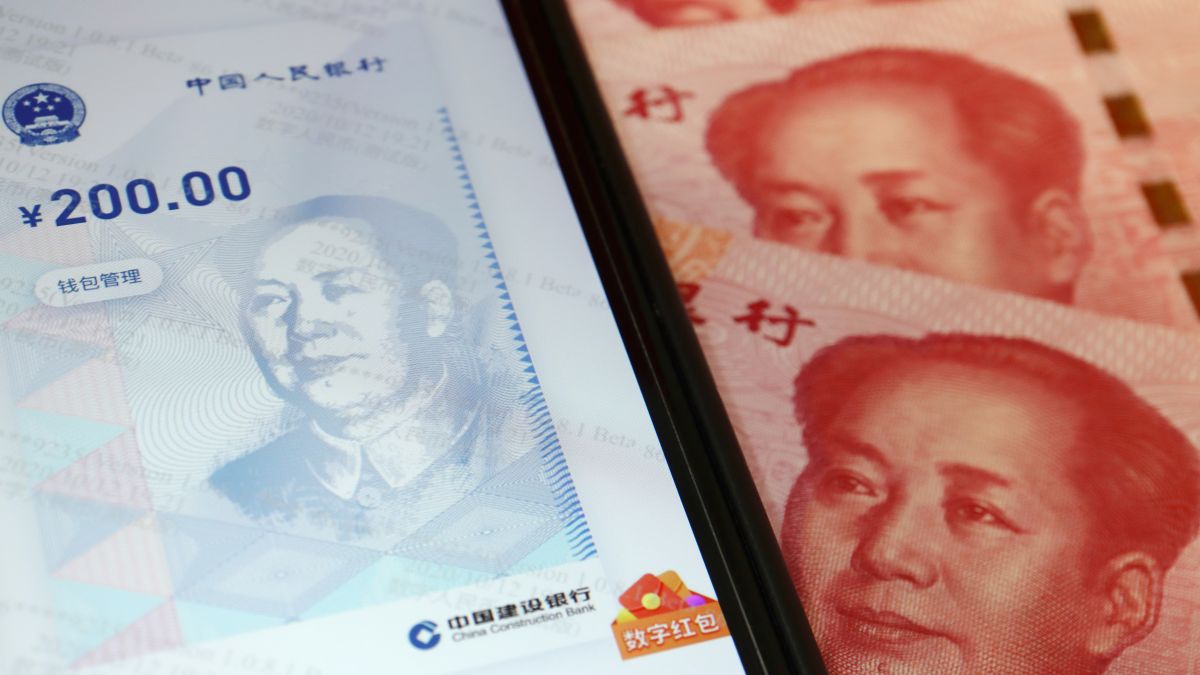China has long been trying to establish its yuan, or renminbi, as an alternative to the dollar. Beijing has expressed its desire to overcome the sway of the US dollar in international trade and finance. However, restrictions on access to Chinese financial markets and limits on convertibility of the yuan, has been a huge obstacle blocking its global use.
However, it is now being reported that China is considering allowing the usage of yuan-backed stablecoins for the first time to boost wider adoption of its currency globally. Reuters reports that the plan is expected to include targets for usage of the Chinese currency in the global markets and outline the responsibilities of domestic regulators, adding that the roadmap will also include guidelines for risk prevention.
Are you confused about what all this means? Are you lost when it comes to the meaning of stablecoins and more? We explain.
What are stablecoins and how do they work?
Stablecoins are digital currencies whose value is linked to a specific currency such as the US dollar. They can be used as a substitute in situations where currency transactions might be difficult or costly. They are different from cryptocurrencies like Bitcoin in that their only purpose is to be a means of payment, not an investment meant to be traded to gain value.
Dollar stablecoins are typically bought and sold for $1 each. They are based on a reserve equal to their value, but are issued by private institutions, not central banks like the US Federal Reserve.
Stablecoins are not digital central bank currencies , which are digital versions of currencies issued by central banks. They are based on blockchain-based distributed ledgers. They are “stable” in the sense that their value is anchored to the currency they are based on.
Critics of stablecoins say that since they are essentially a proxy for ordinary currencies that can bypass banking systems and safeguards set up to manage traditional financial transactions they may be most useful for illegal purposes.
How is China inching towards digital currencies?
China launched its own digital yuan, the e-CNY issued by its central bank, on a trial basis in 2019, and McDonalds was an early participant in that project. Chinese regulators have banned mining, trading and other dealings in private, decentralised digital currencies like Bitcoin, while encouraging use of the digital yuan.
The nearly universal use of electronic payments has facilitated use of the e-CNY in the Chinese mainland, with some cities using it to pay wages of civil servants. State media reported that as of July 2024, there were 7.3 trillion yuan worth of transactions using the currency in areas where it is being used on a trial basis.
China has also been promoting use of e-CNY in Africa, as it expands business dealings on the continent.
But e-CNY are not stablecoins. Experts say regulations are needed to safely manage use of stablecoins and to ensure they could be used smoothly with bank accounts and payment systems.
What is Hong Kong’s role in digital currencies?
Hong Kong, a former British colony that has its own financial markets, currency and partly autonomous legal system, enacted a stablecoin law that took effect on August 1.
Aimed at attracting wealthy investors who want to use digital currencies and other financial products, it requires that a stablecoin linked to the Hong Kong dollar must be equal to the Hong Kong dollar reserves for that digital currency.
As a global duty-free port and financial hub, Hong Kong has often served as a base for trying out paths toward liberalising Chinese financial markets. But new regulations specifically governing yuan stablecoin would be needed if such a digital currency were issued for use in Hong Kong, Liu Xiaochun, deputy director of the Shanghai Institute of New Finance, recently wrote in a report on the Chinese financial website Yicai.com.
What are China’s limits on cross-border dealings?
China’s currency is not freely convertible in world financial markets and its stringent controls on foreign exchange are the biggest hindrance toward making the yuan a global currency, experts say.
According to the Society for Worldwide Interbank Financial Telecommunication, or Swift, as of June, the yuan was the sixth most active currency for global payments by value, with a share of 2.88 per cent. Its use peaked in July 2024 at about 4.7 per cent.
It’s used more often in trade financing, where it accounts for nearly six per cent of such dealings, according to that report. The lion’s share of yuan transactions take place in Hong Kong.
The US dollar’s share as a global payment currency was over 47 per cent as of June, followed by the euro, the British pound, the Canadian dollar and the Japanese yen, the report said.


)

)
)
)
)
)
)
)
)



